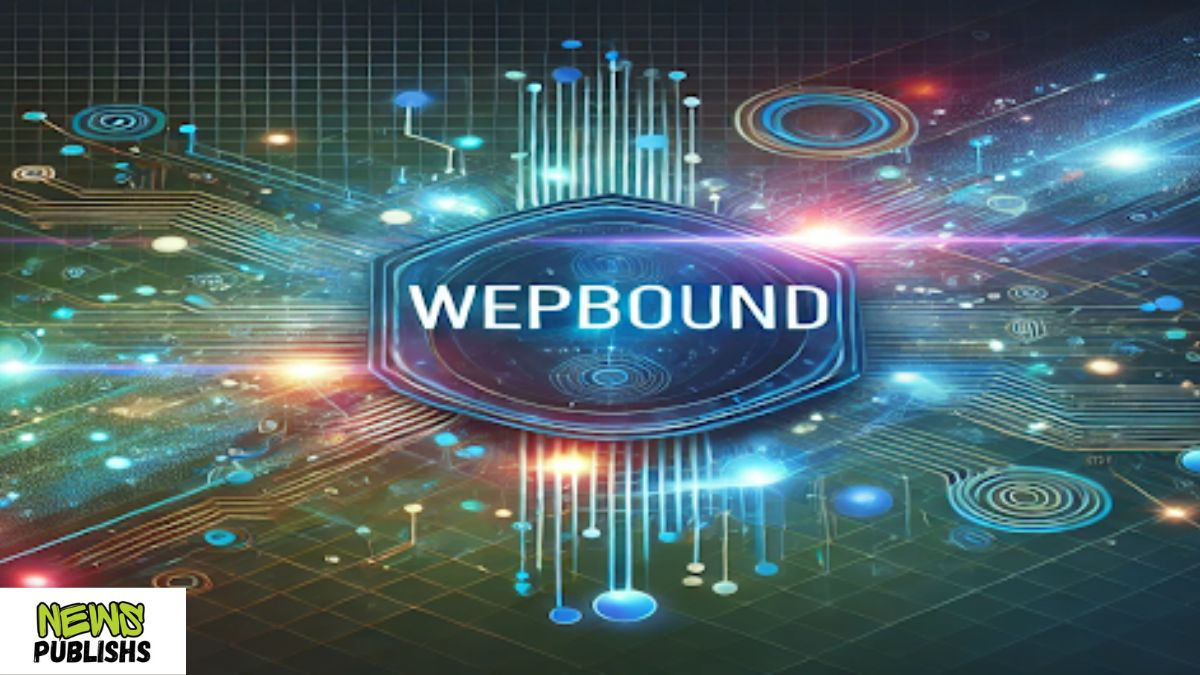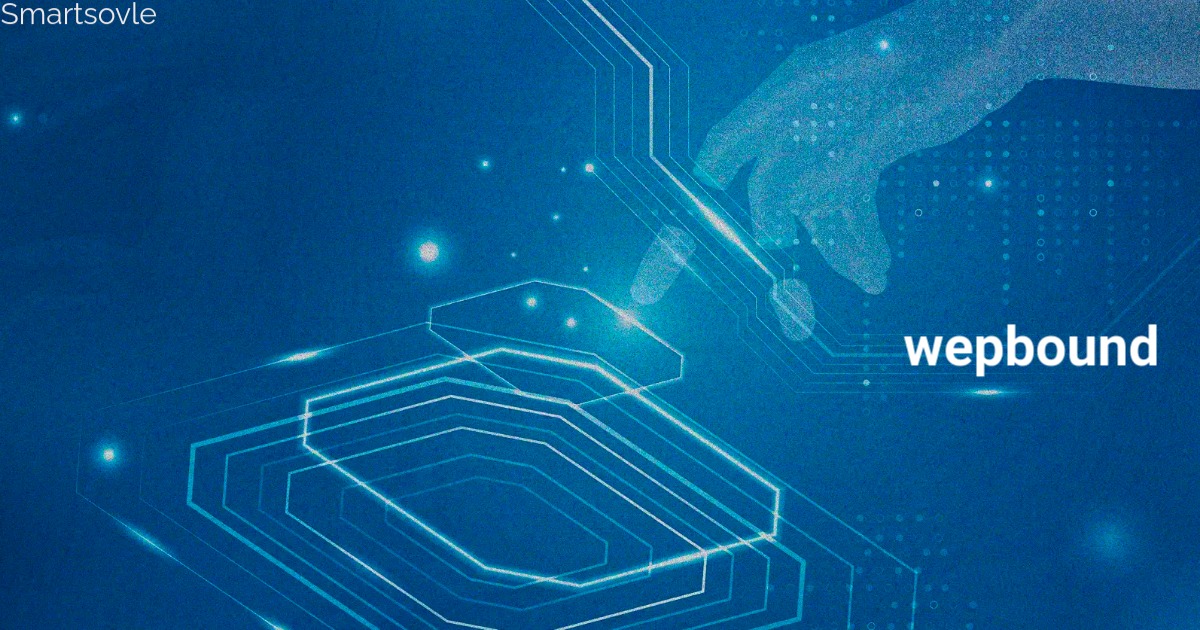The internet, in its current form, has become an integral part of daily life. From social media to e-commerce, and entertainment education, virtually every aspect of human existence is now interconnected through the web. Within this ever-expanding digital universe, the term wepbound emerges as both a concept and a potential trend that carries numerous implications for technology, society, and the future.
In this article, we will explore the idea of wepbound from several perspectives, understanding its possible meanings, applications, and impacts. Whether it’s the idea of being bound to the web due to dependence on digital tools, the idea of new technologies tethering users to specific platforms, or the emerging forces that may shape our relationship with the digital world in the years to come, “webbound” has a significance that transcends simple connectivity.
The Literal Meaning: Being Wepbound in a Technological World
In the most literal sense, “wepbound” could refer to individuals, organizations, or even entire societies being tethered to the World Wide Web, constantly online and engaged with the myriad tools and services it offers. In today’s hyper-connected world, this could mean the dependency on cloud computing for data storage, real-time communications through social media, the reliance on the internet for educational resources, or even shopping online as the primary means of acquiring goods and services.
Being “wepbound” suggests a digital existence in which individuals cannot escape the reach of the internet. This concept of web dependence is increasingly becoming a reality in the modern age. For instance:
The Work-From-Home Revolution: Over the past few years, remote work has surged, fueled by both the COVID-19 pandemic and evolving technological tools. Video conferencing, cloud collaboration platforms, project management apps, and communication tools like Slack have become the lifeblood of modern work. These tools operate on the internet, making people and businesses more reliant on it than ever before. The concept of being “wepbound” reflects this paradigm, where one’s professional identity and career may be entirely tied to one’s ability to access the web.
The Social Media Age: Another key factor contributing to our wepbound existence is social media. With platforms like Facebook, Instagram, Twitter (now X), and others becoming central to personal and professional lives, many people find themselves glued to their screens, constantly checking notifications and interacting with friends, family, or even strangers. In a sense, our social lives, hobbies, and even self-image can be defined by our activity online, making it difficult for individuals to escape the webbound cycle.
E-commerce and Digital Transactions: Shopping, banking, and even healthcare have all transitioned to the digital world. E-commerce giants like Amazon, and eBay, and smaller, specialized online shops have revolutionized the retail experience. People are increasingly dependent on online shopping to meet their needs. Whether it’s buying groceries through delivery apps or managing personal finance with mobile banking apps, the idea of being wepbound has expanded into the realm of consumer activity.
The Metaphorical Meaning: Wepbound as a Restriction
On a more philosophical or metaphorical level, being webbound can also imply a sense of restriction or confinement. While the internet provides incredible freedom in terms of access to knowledge and communication, it also brings a set of challenges that make it hard for people to escape its grasp. This metaphorical interpretation of being wepbound is particularly relevant in discussions about privacy, addiction, and control in the digital age.
Privacy and Surveillance: One of the biggest concerns in the modern digital age is the loss of privacy. The proliferation of surveillance technologies, data mining practices, and corporate tracking systems means that nearly every action we take online is monitored. Whether it’s by governments, corporations, or hackers, people have become aware that they are constantly being watched when they interact with the internet. This sense of constant surveillance is a form of being “wepbound,” where the boundaries of personal freedom and privacy become increasingly blurred.
Addiction and Mental Health: The internet, and in particular social media, has been linked to various mental health issues such as anxiety, depression, and addiction. People often become “webbound” to their devices, constantly checking social media updates or engaging with online communities. This addiction can have profound negative effects on personal well-being, as individuals struggle to disconnect and find balance between their digital and physical lives.
The Echo Chamber Effect: Another metaphorical way to consider being wepbound is through the concept of the echo chamber. Social media algorithms curate our digital experiences based on what we have liked or interacted with in the past. Over time, this leads to the formation of digital “bubbles” where individuals are only exposed to information that confirms their existing beliefs.
People become trapped in these digital silos, which limits exposure to diverse ideas and perspectives. This form of webbound existence creates an environment where individuals are bound to a narrow view of the world.
Digital Addiction and Dependency: Being wepbound can also manifest in individuals’ growing dependency on digital tools. From smartphones to tablets and wearable devices, people find it difficult to disconnect from the internet. This dependency can lead to physical issues like eye strain, poor posture, or the inability to focus on tasks in the physical world. It also erodes social skills, as people find themselves more comfortable interacting with screens than with real human beings.
Wepbound in the Context of Future Technologies
As we move further into the 21st century, the concept of being webbound will likely take on new forms. Technological advancements such as the Internet of Things (IoT), virtual reality (VR), augmented reality (AR), and artificial intelligence (AI) will deepen the connection between the digital and physical worlds. These technologies will make us even more webbound, in ways we can only begin to imagine.
The Internet of Things (IoT): With the rise of smart homes, cars, and cities, the Internet of Things is set to revolutionize the way we interact with the world. IoT refers to a network of interconnected devices that communicate with each other and the internet. From refrigerators that track your groceries to smart thermostats that learn your habits, we are becoming more webbound as even our physical environment becomes digitally connected.
Virtual Reality (VR) and Augmented Reality (AR): VR and AR technologies are breaking down the barriers between the real world and the digital world. VR can immerse users in entirely new digital worlds, while AR overlays digital elements in the real world, enriching experiences with data, entertainment, or information. Both technologies will create new ways of being wepbound, as individuals step into fully immersive online experiences, or find themselves interacting with the web in ways that seem indistinguishable from reality.
Blockchain and Decentralized Systems: On the other hand, some argue that the future of the internet will be more decentralized, thanks to blockchain technology. This could potentially free individuals from certain forms of webbound existence, allowing users to interact in a more private, secure, and independent manner. By decentralizing data storage and creating transparent, tamper-proof systems, blockchain could alter the way we think about online security and control, giving people more agency over their digital lives.
The Social and Political Implications of Wepbound
Finally, the concept of being webbound is not just a matter of personal lifestyle—it also has deep social, political, and economic implications. The increasing reliance on the internet is reshaping power structures, with large corporations and governments gaining unprecedented control over digital spaces.
Corporate Control and the Digital Divide: With the web becoming increasingly essential, those without access to it or the means to engage with it are at a severe disadvantage. This creates a digital divide, where people in certain geographic regions or socio-economic classes are excluded from opportunities that the web provides. In this context, being wepbound can also mean being locked out of critical services and information, highlighting the need for greater inclusivity in digital access.
Censorship and Regulation: Governments around the world are grappling with how to regulate the internet. Issues like online censorship, misinformation, and privacy violations have led to debates about how to control and police the web. The rise of wepbound existence could also lead to a tightening of controls, where governments or corporations impose stricter regulations that limit free speech, expression, and access to information.
Globalization and Cultural Homogenization: As the internet connects people from all corners of the globe, it also contributes to the spread of Western cultural norms and ideas. This global connectivity can result in cultural homogenization, where local traditions, languages, and customs are overshadowed by dominant global cultures. The concept of being webbound in this sense suggests that the web has the power to shape not just individual lives, but entire societies and cultures, leading to potential tensions between local traditions and global influences.
Conclusion: The Future of Being Wepbound
As the world continues to digitize, the concept of being wepbound will evolve and take on new forms. Whether it’s the dependency on the internet for work and social interaction, the limitations imposed by digital surveillance and addiction, or the emerging technologies that promise to reshape our relationship with the web, it’s clear that the digital world will continue to play an increasingly central role in our lives.
The term “wepbound” encapsulates the complex intersection of freedom and restriction in our online lives, offering a lens through which to examine the consequences of a world increasingly mediated by digital tools. As we move forward, it will be crucial to consider both the benefits and challenges of this new reality, and how we can shape the future of our webbound existence to ensure a more equitable, free, and balanced digital future for all.

